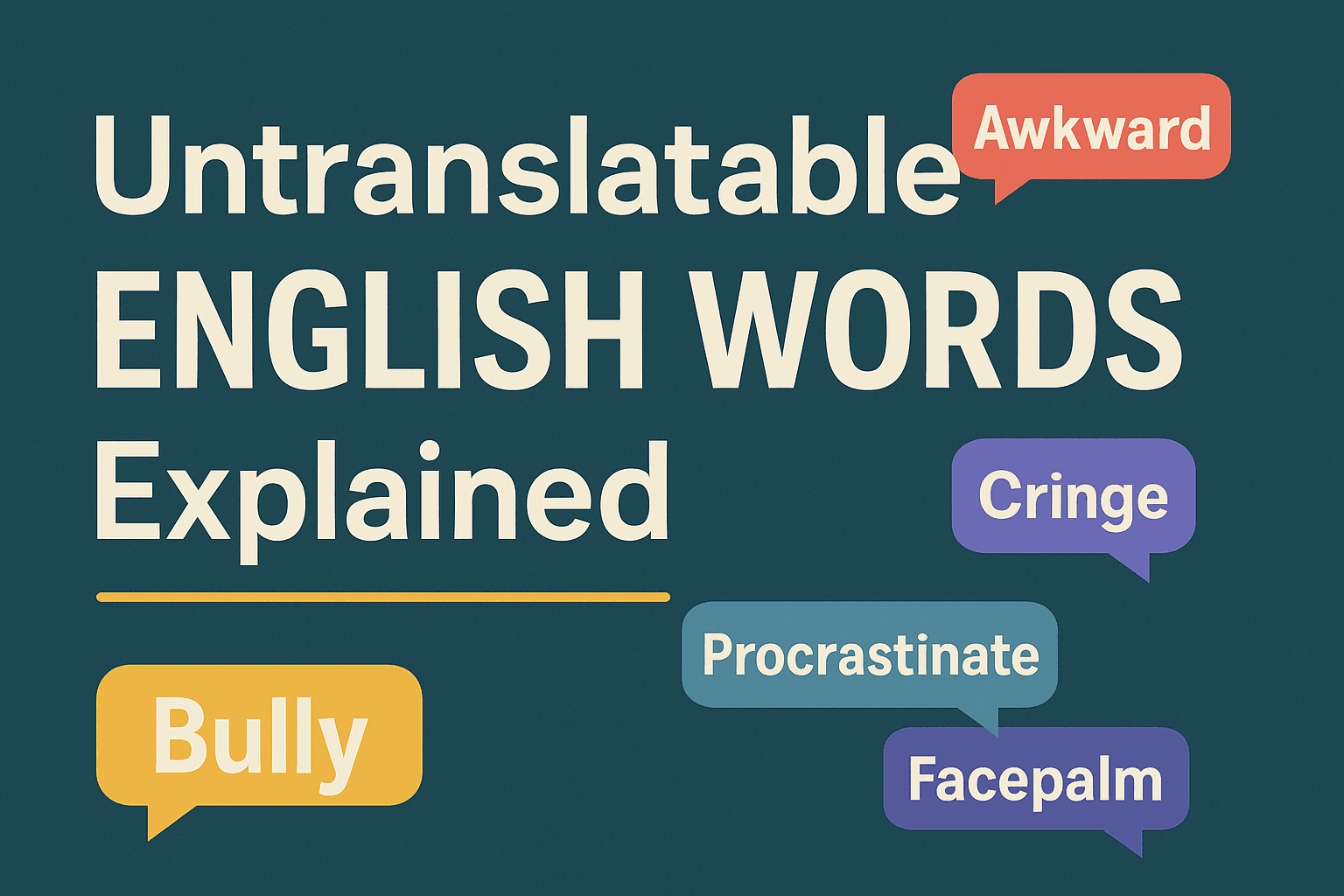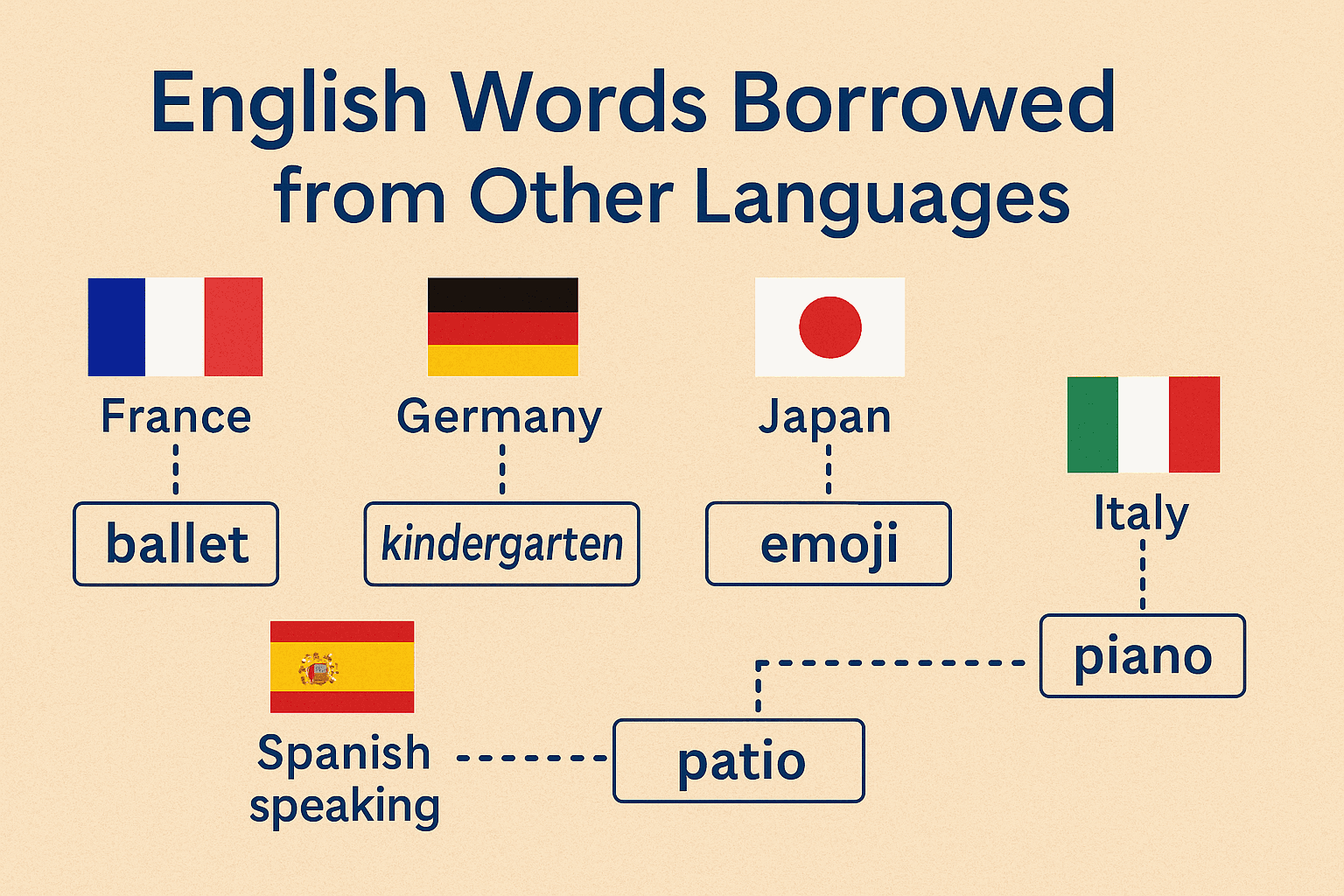Untranslatable English Words: Must-Have Insights Revealed
Untranslatable English Words Explained
Language is a living tapestry woven from culture, emotion, and context. Some words possess such intricate meanings that they elude direct translation into other languages. The term “untranslatable” implies a richness that makes finding an exact counterpart often impossible. In this article, we will explore a fascinating array of untranslatable English words, dissect what makes them unique, and reveal the subtle nuances they bring to English communication—nuances that can vanish when translated.
What Are Untranslatable Words?
Untranslatable words are those expressions that lack a direct equivalent in another language. As a result, translating them verbatim often leads to a loss of emotional depth, meaning, or nuance. These words typically arise from:
– Culture-specific ideas: Concepts deeply rooted in particular societies.
– Complex emotional or social concepts: Feelings or situations that might be difficult to articulate universally.
– Context-dependent interpretation: Words that rely heavily on situational context to convey their full meaning.
While discussions often focus on untranslatable words from other languages—think terms like “hygge,” “saudade,” or “ikigai”—English is home to a variety of unique terms as well.
A Glimpse at Untranslatable English Words
Awkward
Definition: A feeling of social discomfort or unease, especially in uncertain situations.
Why It’s Untranslatable: The term “awkward” encapsulates a blend of social discomfort, clumsiness, and embarrassment, a complex idea that many languages struggle to express.
Example: “It became awkward when no one laughed at his joke.”
Bully
Definition: An individual who consistently seeks to harm or intimidate those perceived as weaker.
Why It’s Untranslatable: While various languages can describe an “aggressor” or “intimidator,” the term “bully” conveys intricate social and psychological dimensions, especially relevant to childhood dynamics.
Cringe
Definition: An involuntary emotional response to something embarrassing or socially painful.
Why It’s Untranslatable: Few languages possess a single word that conveys both the immediate emotional response and the physical discomfort that “cringe” encapsulates, particularly in the context of internet culture.
Example: “When she said, ‘you too,’ to the waiter who said, ‘enjoy your meal,’ I couldn’t help but cringe.”
Procrastinate
Definition: To delay or postpone undertaking a task, particularly one of significant importance.
Why It’s Untranslatable: While many languages can describe “delaying” tasks, “procrastinate” specifically captures the habitual nature of indecision, infusing it with a self-defeating nuance.
Facepalm
Definition: The act of placing one’s hand over the face in response to frustration or embarrassment.
Why It’s Untranslatable: Originating from internet memes, “facepalm” has gained global recognition as it illustrates a physical reaction combined with deep emotional undertones.
Example: “I couldn’t help but facepalm when she misunderstood the question.”
More Untranslatable English Words
– Spam: More than just unwanted emails, it represents an invasion of repetitive digital intrusion.
– Hype: A unique blend of anticipation, marketing, and emotional momentum.
– Shenanigans: Lighthearted mischief or deceitful antics.
– Whistleblower: Someone who exposes unethical behavior, emphasizing moral implications.
– Freelancer: Refers to an independent worker, a term often misunderstood in translation.
Why Are Certain Words Untranslatable?
The phenomenon of untranslatability signifies more than just a linguistic gap; it highlights:
– Loss of emotional tone: Subtle sentiments may be overlooked.
– Cultural context being overlooked: The essence tied to a specific culture may not have an equivalent.
– Exact connotations not being matched: Nuances can be lost when seeking direct translations.
– Absence of an equivalent single term: Some concepts might require multiple words or phrases to convey fully.
Consequently, untranslatable words often demand extended explanations to be properly understood, unveiling a rich emotional and conceptual tapestry.
The Global Appeal of Untranslatable English Words
Many originally untranslatable English words have gained global recognition for several reasons:
– Describing universal experiences: Terms like “cringe” resonate with a wide audience.
– Belonging to digital culture: Words such as “spam” or “selfie” have become part of everyday language worldwide.
– Lacking effective alternatives: Some English terms fill lexical voids in other languages, making them invaluable.
Conclusion
Untranslatable words illuminate the very essence of a language, revealing the ideas, values, and experiences it treasures. English, with its vast vocabulary and global reach, harbors more untranslatable words than many may realize. Understanding these terms not only enriches communication but also deepens our appreciation for cultural differences, inviting us to recognize emotional nuances that might otherwise go unnoticed. Next time you feel that secondhand embarrassment while watching a show, remember—there’s truly no better term for it than “cringe.” This is the beauty of English, where words come alive with meaning.
Ever come across a word that can’t quite be captured in English — a little linguistic gem that slips through the cracks? In fact, the concept of “untranslatable words” opens a doorway into how cultures shape language. According to the article “Scientific American: The Magic of ‘Untranslatable’ Words” (link below), these words often expose a lexical gap in English — meaning, an experience or concept that’s deeply wired into another culture’s worldview.
Dive deeper here: The Magic of “Untranslatable” Words
And once you begin spotting them — that Finnish sisu, the German Waldeinsamkeit, the Portuguese saudade — you’ll realize that English borrows more than just words: it borrows worlds.
Brand Name Generator | Free Name Generator | Fantasy Name Generator




